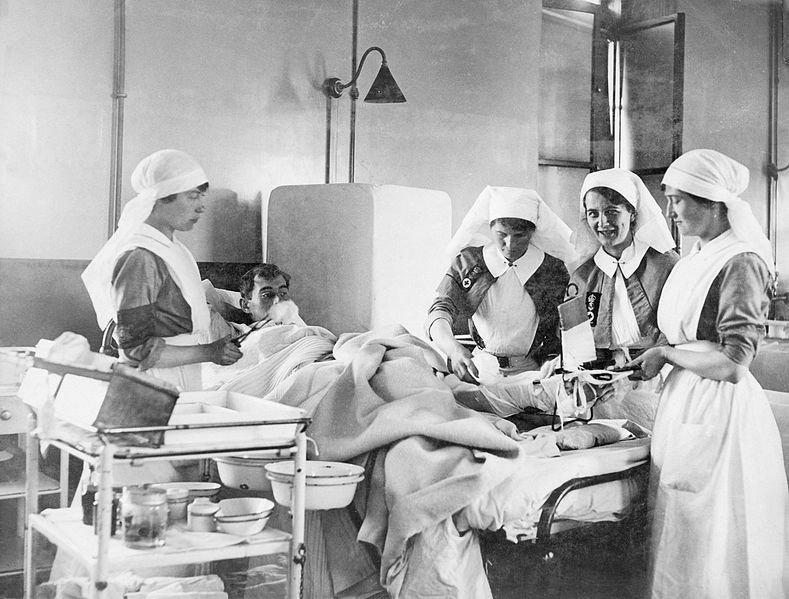Studying the history of nursing in the United States provides a fresh perspective on the importance of these healthcare professionals. Nursing is a fascinating field that has rapidly evolved since its formal inception in the late 1800s. Before nurses were properly trained in the administration of healthcare, they were volunteers who learned while “on the job,” serving in a caretaker role. Today’s nurses maintain high ethical standards and receive extensive education to ensure they follow healthcare best practices.
How nurses are educated and the role they play in the U.S. healthcare system has evolved dramatically.
In this brief history of the nursing profession, we discuss:
- Establishment of formal nursing education
- Regulation (licensure) of the nursing practice
- Introduction of nursing ranks
- Pioneers who shaped the nursing industry
Establishment of formal nursing education
As healthcare transforms, so do the educational requirements for nurses and other healthcare practitioners. To call the education early nurses received rudimentary would be an understatement. Most of what they learned came from other nurses and some of the doctors with whom they worked side-by-side. Early nurses spent roughly a year receiving education and training on how to provide bedside care without the involvement of medical science. They were more like glorified caregivers than healthcare experts.
The first nursing graduates were reminded it was their duty to refrain from having an opinion on the administration of healthcare to patients and leave medical diagnoses and treatments to doctors. In stark contrast, today’s nurses have a duty and an obligation to share their opinions with other members of the healthcare team. They have been afforded this right because of their extensive education that provides them with insight into human anatomy and healthcare best practices designed to improve patient outcomes.
We can credit Florence Nightingale – the mother of nursing – with making nursing education more science-based. She established the first formal nursing school in 1860, changing the direction of the nursing industry. Nurses today spend on average three years in nursing school. At a minimum, aspiring nurses must earn an Associate Degree in Nursing (ADN) from an accredited nursing school to begin working in the field. Others choose to pursue more advanced nursing degrees.
Get job matches in your area + answers to all your nursing career questions

Regulation (licensure) of the nursing practice
Once upon a time, nurses required neither formal education nor professional licensure to work in the field. Early nurses got plenty of on-the-job experience instead of formal education. Considering their services were more care-based than science-based, they did not need extensive training. Today, aspiring nursing professionals must have both formal education and professional licensure to advance work in the field and their careers.
Nurses who earn an ADN must then pass the National Council Licensure Examination (NCLEX) before they can seek employment. RNs take the higher-level NCLEX-RN exam that expands on their additional knowledge and leadership abilities. Nursing licensure requires renewal every two years from the date of the initial issuance.
Nursing certifications also exist and may be required for certain nursing careers. Nurses who choose specialties like cardiac nursing or critical care nursing can expect to need certification in those areas to prove they have the education and experience to perform their duties. Healthcare employers have the final say whether nurses must be certified to work in their facilities. Depending on the type of certification, nurses may have to complete continuing education credits and gain on-the-job experience before becoming eligible to apply. Certifications must be renewed periodically.
Introduction of nursing ranks
Another advancement in the nursing profession is the introduction of nursing ranks. Currently, there are six levels of nursing professionals in the U.S. healthcare industry:
- Certified Nursing Assistant (CNA)
- Licensed Practical Nursing/Licensed Vocational Nurse (LPN/LVN)
- Registered Nurse (RN)
- Advanced Practice Registered Nurse (APRN)
- Doctor of Nursing Practice (DNP)
- Chief Nursing Officer (CNO)
CNAs are the bottom rung on the nursing ladder, with CNO being the highest possible position nurses can obtain. Each level of nursing requires a different educational degree. CNAs can finish their training programs in as little as 12 weeks. LPNs and RNs attend nursing school for two years and three to four years, respectively. DNPs are the highest level of education a nursing professional can obtain and take up to eight years of nursing education plus special licensure and certifications. CNOs need a Master of Science in Nursing (MSN) or higher, with a secondary focus on business administration.
Pioneers who shaped the nursing industry
When most people think about nursing, they immediately envision Florence Nightingale. Her role in the profession is undisputed. However, she is not the only pioneer who helped shape the modern nursing industry. Here are some other nursing influencers and a brief synopsis of their contributions to nursing.
- Mary Breckinridge was a nurse-midwife who, in 1925, founded the New Model of Rural Health Care & Frontier Nursing Service. Her organization delivers healthcare to underserved rural women and children and still operates today.
- Mary Mahoney was the first African American nurse. She inspired other women of color to enter the nursing field. She founded the National Association of Colored Graduate Nurses (NACGN).
- Virginia Avenel Henderson was one of the most famous nurses of the 20th century for her extensive knowledge of nursing education, practice, and research. Her work is still used for training purposes.
Get job matches in your area + answers to all your nursing career questions

